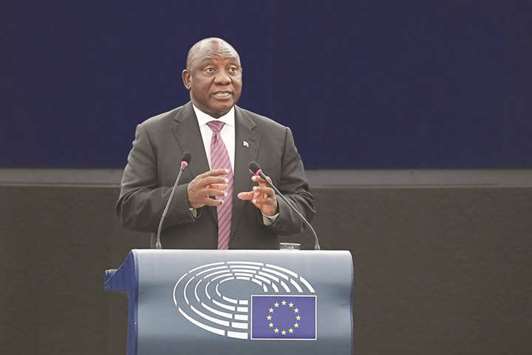South African President Cyril Ramaphosa told the European Parliament yesterday that his government will enact land reforms in adherence to the country’s constitution and with respect for the human rights of all its people.
“This problem of land will be resolved through adherence to the rule of law and adherence to the constitution,” Ramaphosa told lawmakers.
But the move has unnerved investors, a senior World Bank group executive said.
Ramaphosa’s party has made the acceleration of land redistribution a key issue ahead of 2019 elections, while pledging to carry out land reform in a way that does not threaten food security.
Most private land remains in the hands of the white minority more than two decades after the end of apartheid, making it a vivid symbol of wider disparities.
“If you create uncertainty of some aspects of your environment, and land tenure is one of them, that is one aspect that investors will be looking at,” Sérgio Pimenta, the vice president for the Middle East and Africa at the International Finance Corporation (IFC), the World Bank’s private investment arm, said.
“What investors are looking for is certainty,” he said on the sidelines of a meeting between the World Bank and member countries in Livingstone, a town located in Zambia south of the capital Lusaka.
“The land issue is a complex issue,” he said. “Whatever the solution the government is looking at, creating an environment that is reliable, that is certain, is important.”

South Africa’s President Cyril Ramaphosa delivers a speech during a plenary session at the European Parliament in Strasbourg yesterday.
